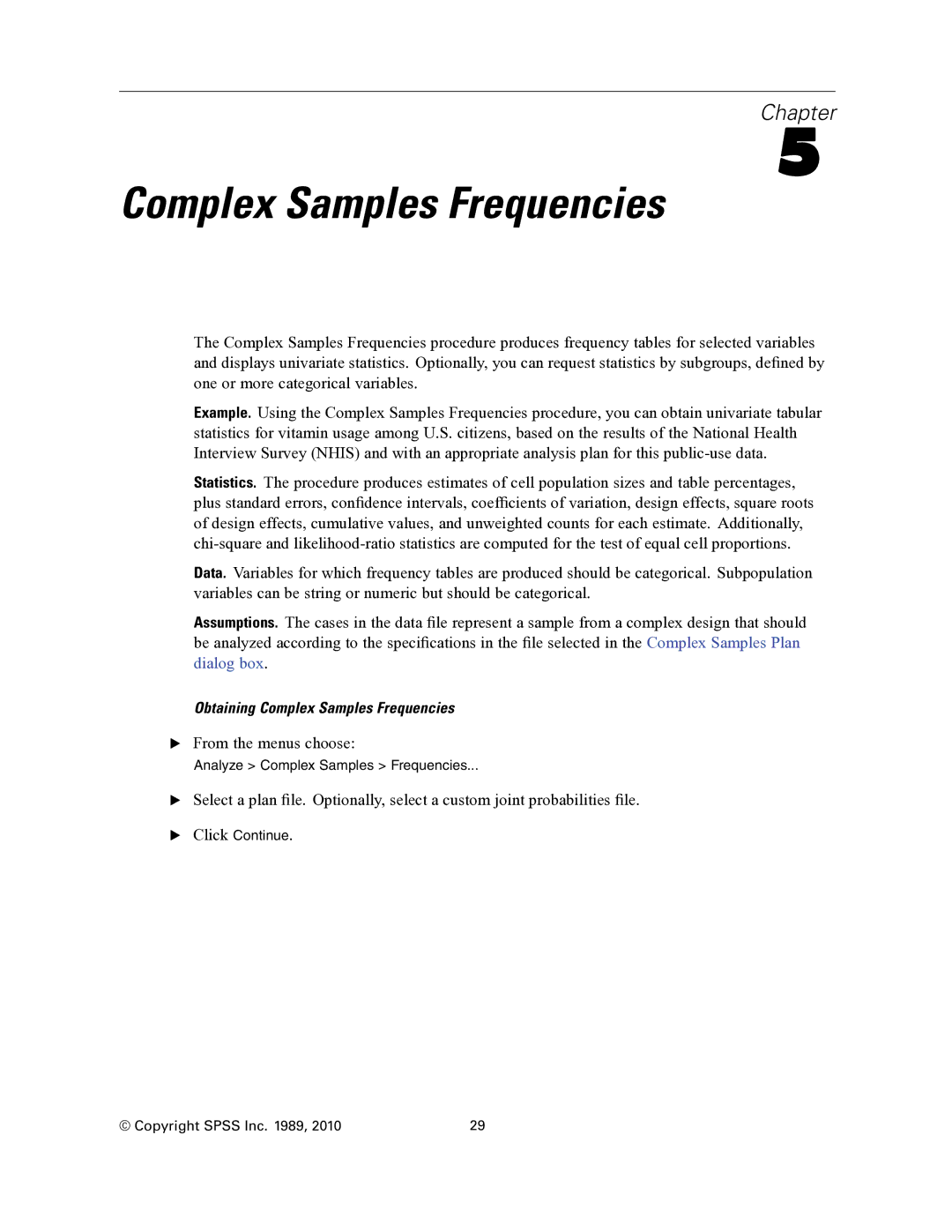Chapter
5
Complex Samples Frequencies
The Complex Samples Frequencies procedure produces frequency tables for selected variables and displays univariate statistics. Optionally, you can request statistics by subgroups, defined by one or more categorical variables.
Example. Using the Complex Samples Frequencies procedure, you can obtain univariate tabular statistics for vitamin usage among U.S. citizens, based on the results of the National Health Interview Survey (NHIS) and with an appropriate analysis plan for this
Statistics. The procedure produces estimates of cell population sizes and table percentages, plus standard errors, confidence intervals, coefficients of variation, design effects, square roots of design effects, cumulative values, and unweighted counts for each estimate. Additionally,
Data. Variables for which frequency tables are produced should be categorical. Subpopulation variables can be string or numeric but should be categorical.
Assumptions. The cases in the data file represent a sample from a complex design that should be analyzed according to the specifications in the file selected in the Complex Samples Plan dialog box.
Obtaining Complex Samples Frequencies
EFrom the menus choose:
Analyze > Complex Samples > Frequencies...
ESelect a plan file. Optionally, select a custom joint probabilities file.
EClick Continue.
© Copyright SPSS Inc. 1989, 2010 | 29 |
